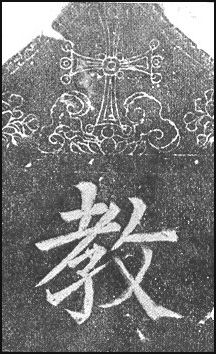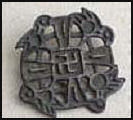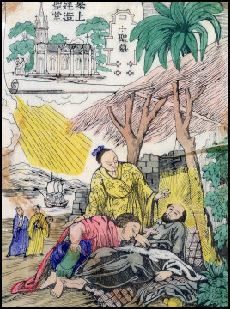A
few years ago, a group of salesmen went to a regional sales convention
in Chicago. The convention lasted all week, and all the salesmen had
assured their wives that they would be home in plenty of time for Friday
night’s dinner.
As
they hurried to the airport to catch their return flight, they rushed
down the airport’s corridor with their briefcases in hand. In their
rush, one of these salesmen inadvertently kicked over a table which held
a display of apples.
Apples flew everywhere. Without stopping or looking back, they all continued running so they would make their plane.
All but one.
He
stopped after running a few more yards, took a deep breath, and
experienced a twinge of compassion for the girl whose apple stand had
been overturned.
He
told his buddies to go on without him, waved goodbye, told one of them
to call his wife when they arrived at their home destination and explain
his taking a later flight. Then he returned to the terminal where the
apples were all over the terminal floor.
He was glad he did.
The
16 year old girl running the apple cart was totally blind. She was
softly crying, tears running down her cheeks in frustration, and at the
same time helplessly groping for her spilled produce as the crowd
swirled about her, no one stopping and no one to care for her plight.
The salesman knelt on the floor with her, gathered up the apples, put them back on the table and helped organize her display.
As he did this, he noticed that many of the apples had become battered and bruised; these he set aside in another basket.
When
he had finished, he pulled out his wallet and said to the girl, “Here,
please take this $40 for the damage we did. Are you okay?”
She nodded through her tears.
He continued on with, “I hope we didn’t spoil your day too badly.”
As the salesman started to walk away, the bewildered blind girl called out to him, “Mister…..”
He paused and turned to look back into those blind eyes.
She continued, “Are you Jesus?”
He
stopped in mid-stride, and he wondered. Then slowly he made his way to
catch the later flight with that question burning and bouncing about in
his soul: “Are you Jesus?”
Do people mistake you for Jesus?
That’s
our call, is it not? To be so much like Jesus that people cannot tell
the difference as we live and interact with a world (shopping, working,
reacting to others that are serving us) that is blind to His love, life
and grace.
If we claim to know Him, we should live, walk and act as He would.
Knowing Him is more than simply quoting Scripture and going to church. It’s actually living the Word as life unfolds day to day.
You
are the apple of His eye even though we, too, have been bruised by a
fall. He stopped what He was doing and picked you and me up on a hill
called Calvary and paid in full for our damaged fruit.
Let us live like we are worth the price He paid.
Be kinder than necessary, for everyone you meet is fighting some kind of battle.
–Author Unknown

 The Chinese were exposed to Christianity and Islam during the A.D. 7th
and 8th century, but ultimately they found both beliefs unappealing as
they did with Zoroastrianism and Manicheanism— the belief that good and
evil exists in all humans, and that life is a struggle between the
spirit and the flesh. All these faiths arrived in China on Silk Road
The Chinese were exposed to Christianity and Islam during the A.D. 7th
and 8th century, but ultimately they found both beliefs unappealing as
they did with Zoroastrianism and Manicheanism— the belief that good and
evil exists in all humans, and that life is a struggle between the
spirit and the flesh. All these faiths arrived in China on Silk Road 

